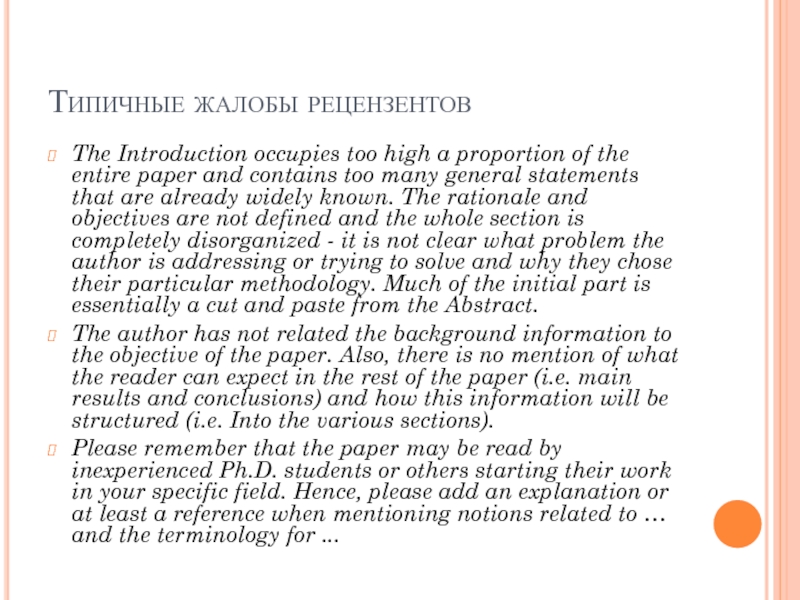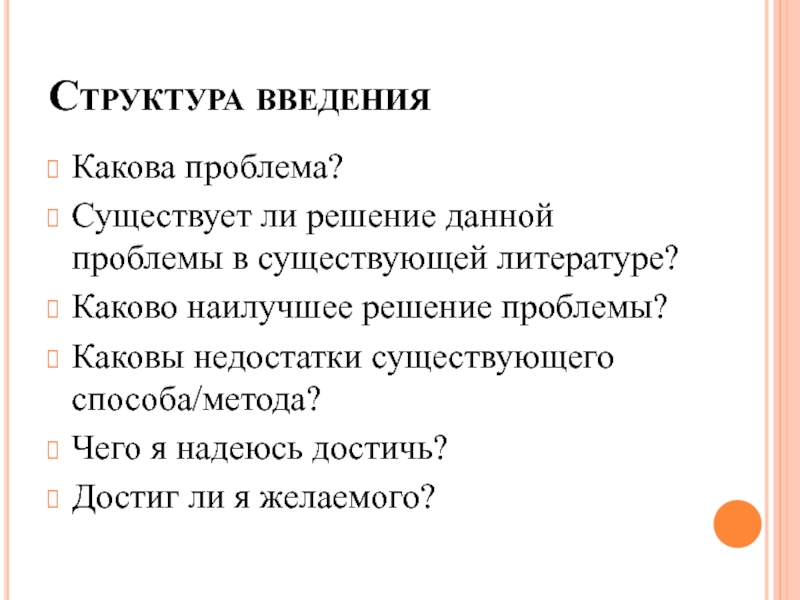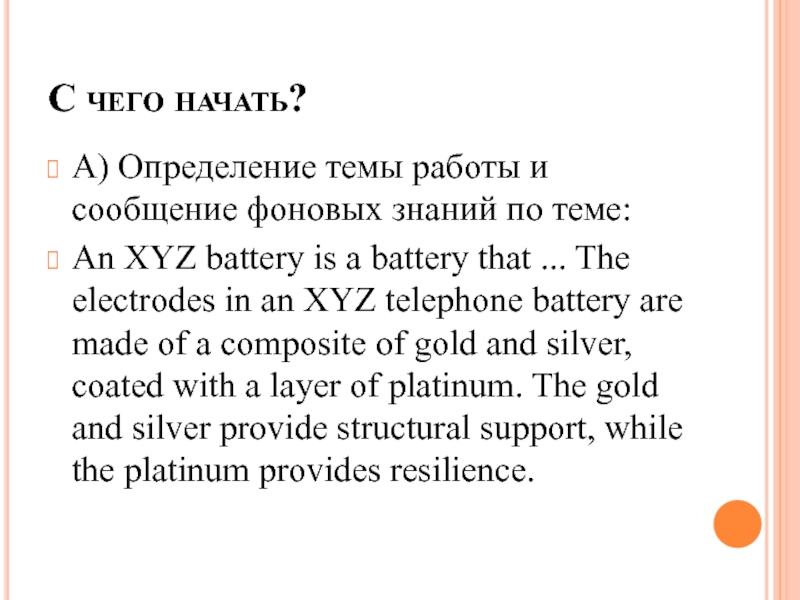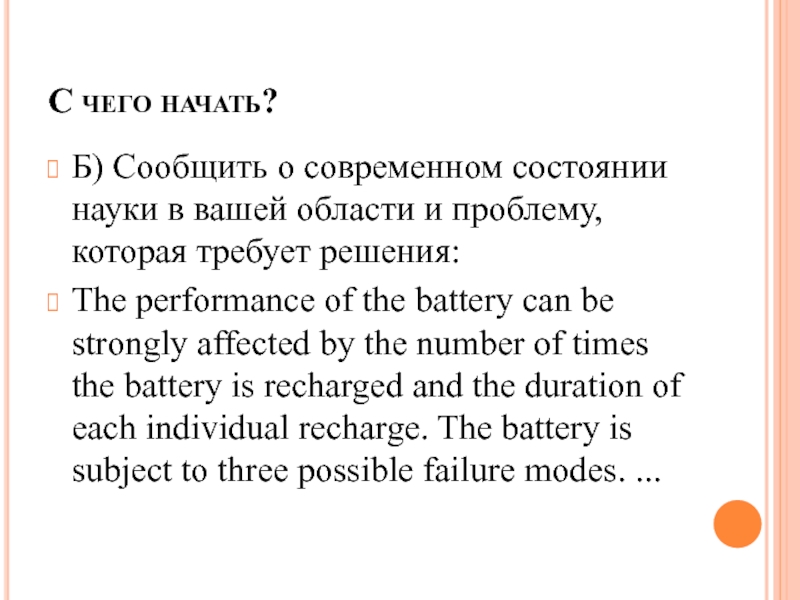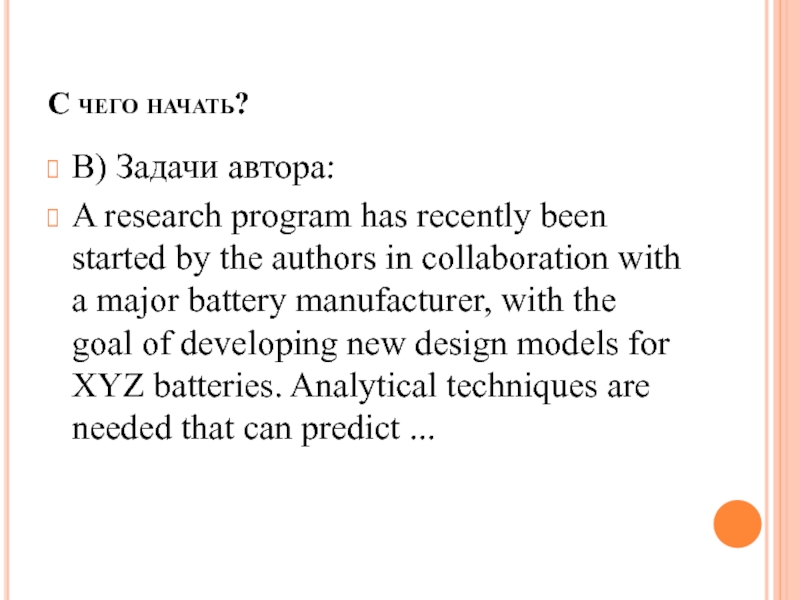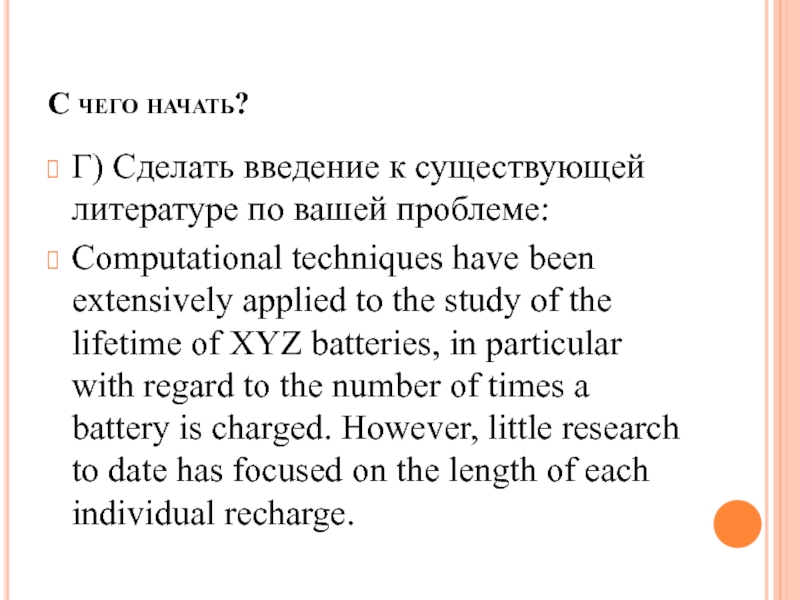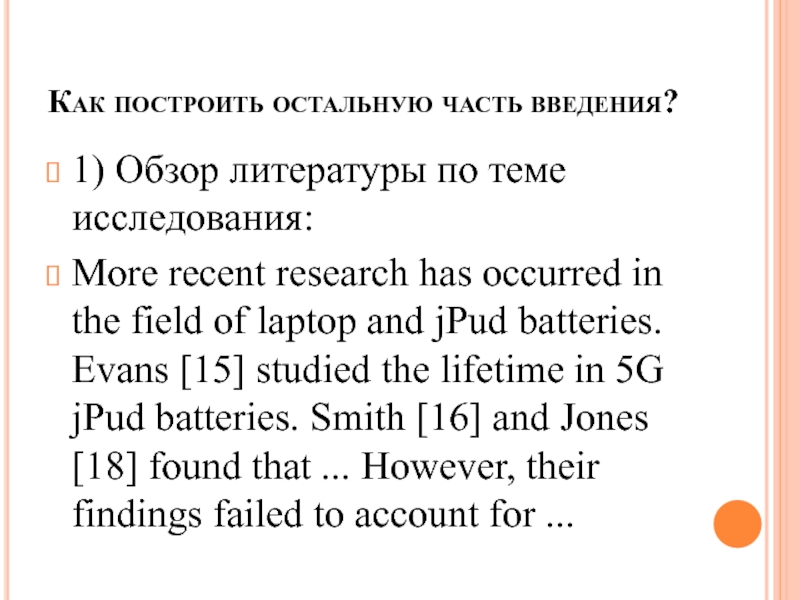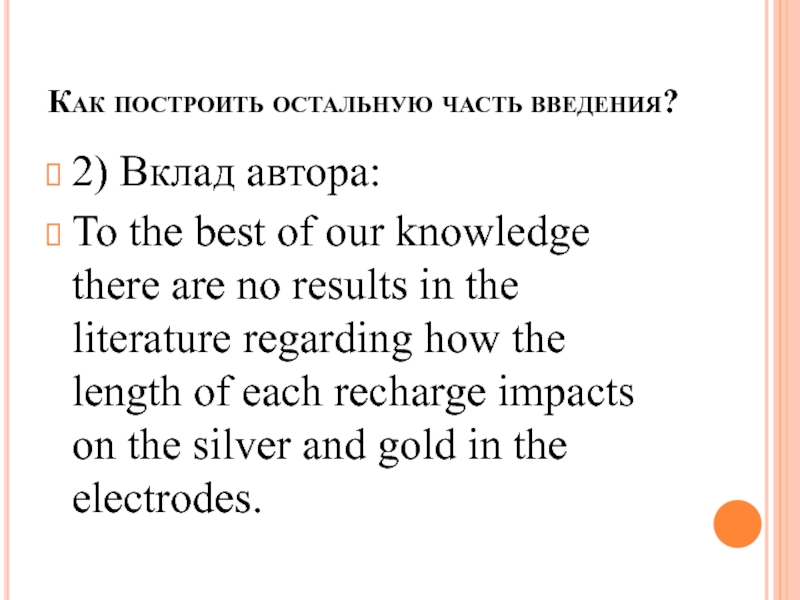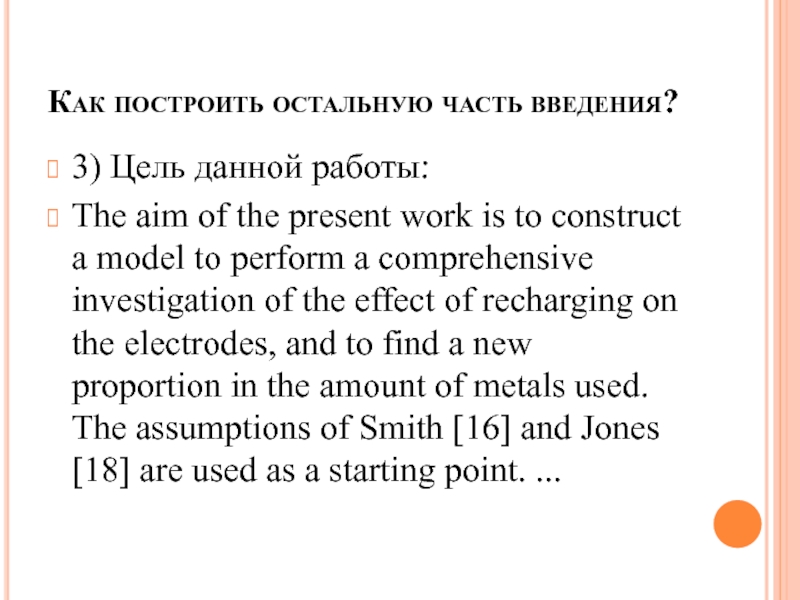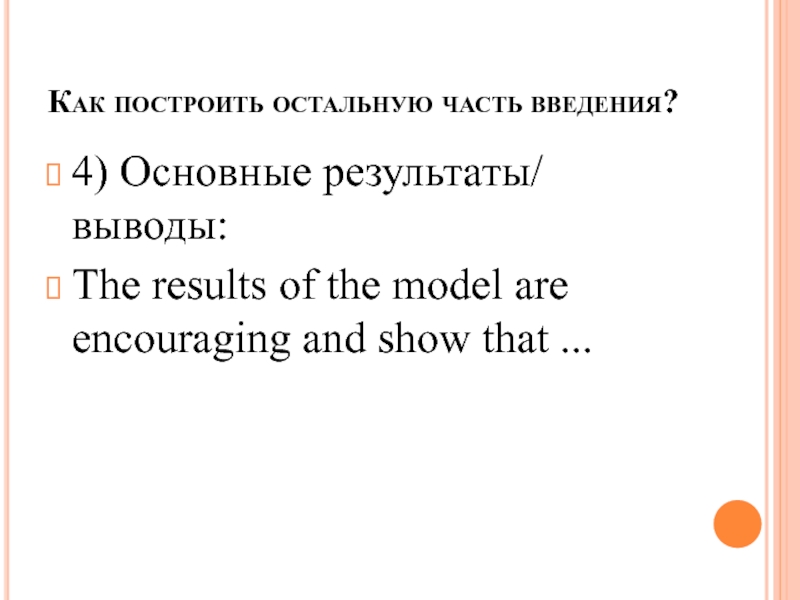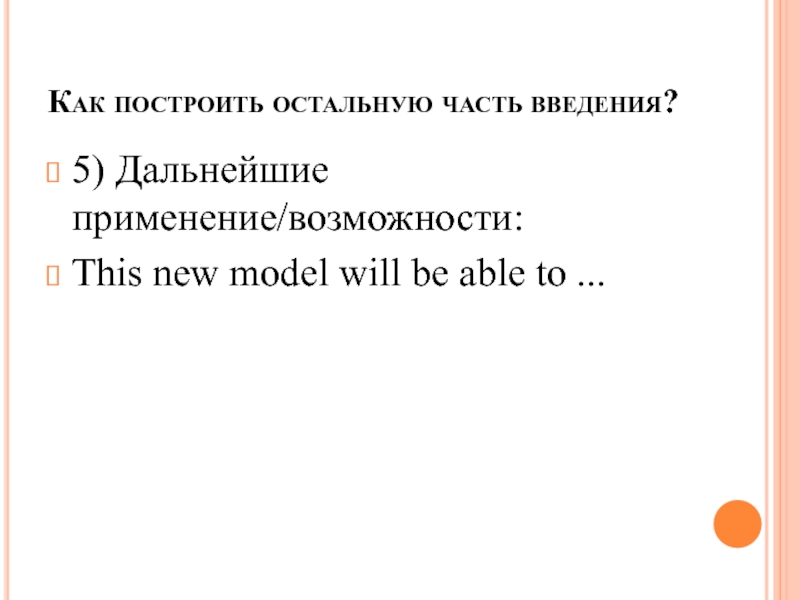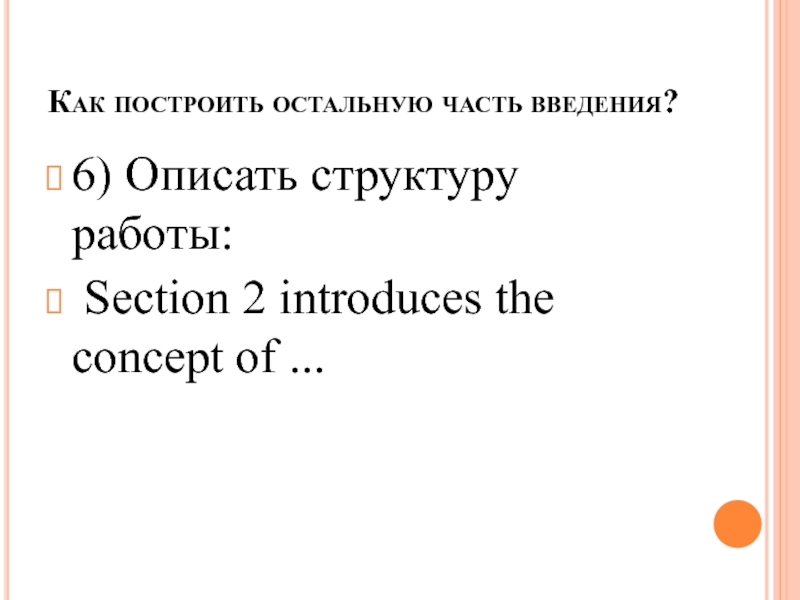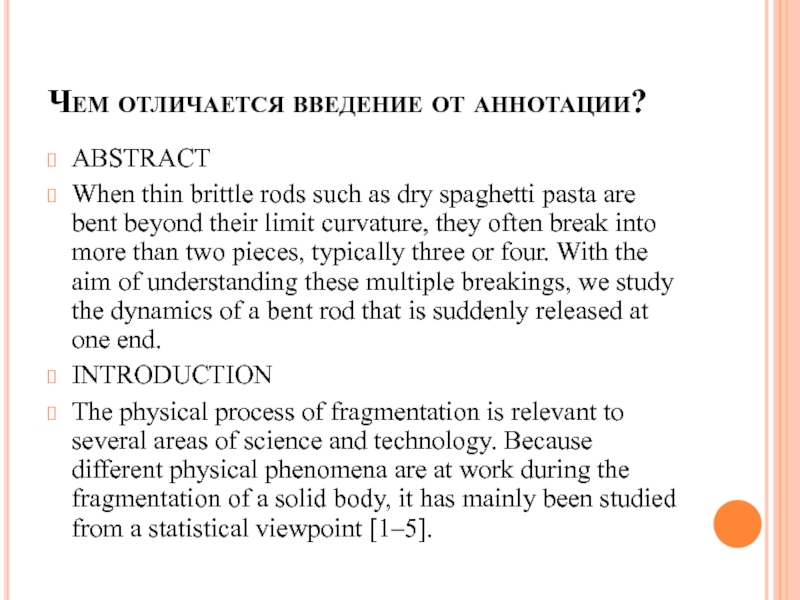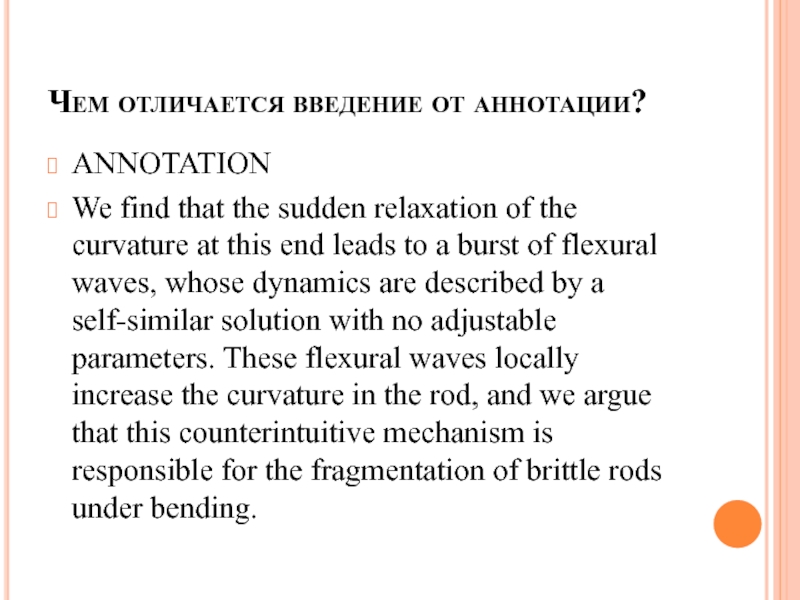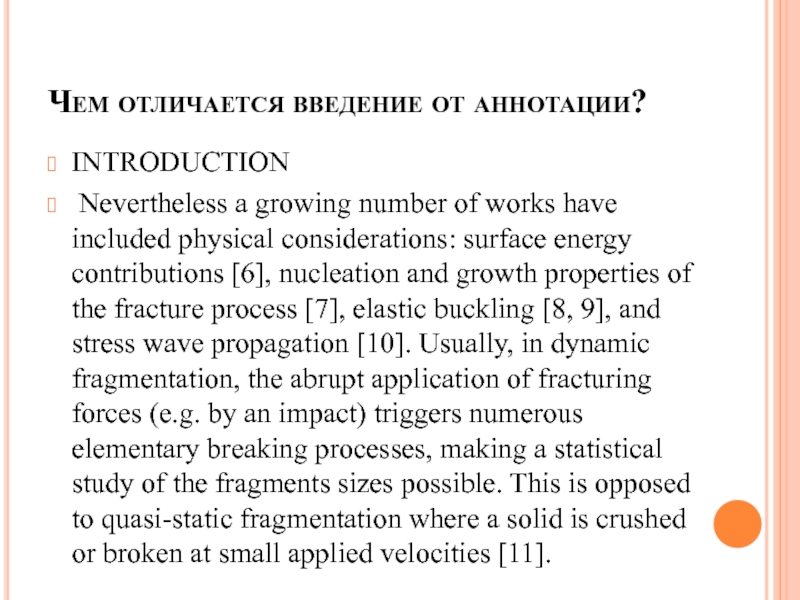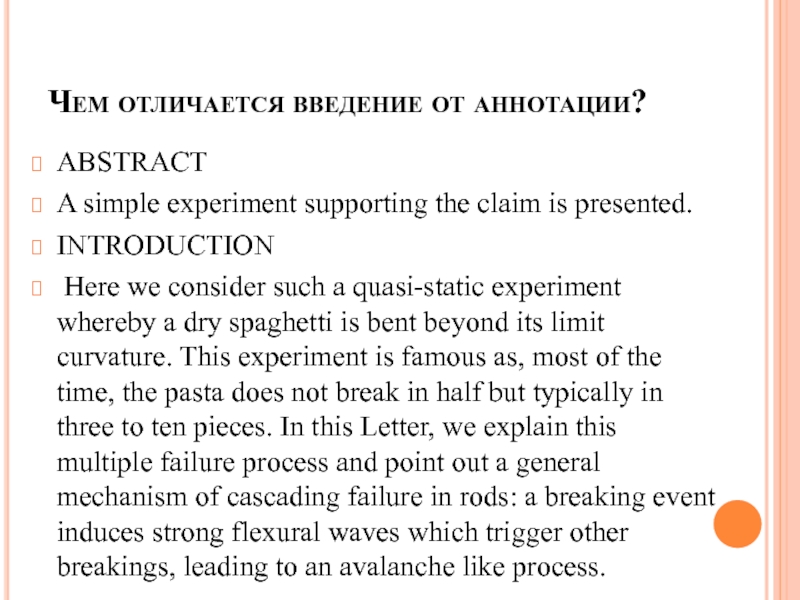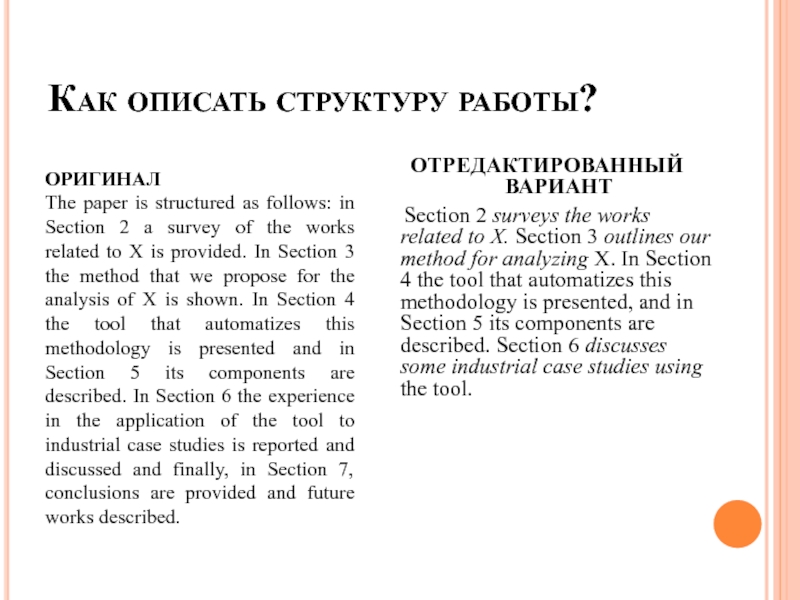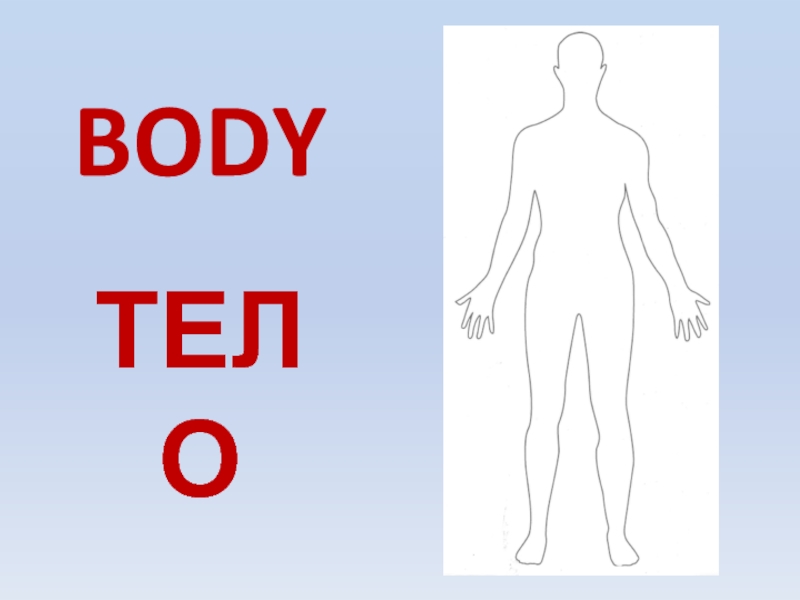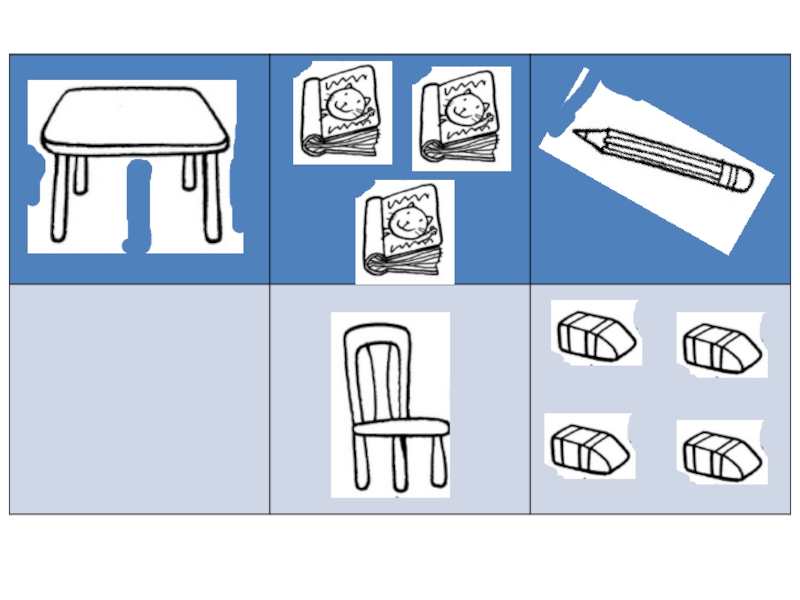- Главная
- Разное
- Дизайн
- Бизнес и предпринимательство
- Аналитика
- Образование
- Развлечения
- Красота и здоровье
- Финансы
- Государство
- Путешествия
- Спорт
- Недвижимость
- Армия
- Графика
- Культурология
- Еда и кулинария
- Лингвистика
- Английский язык
- Астрономия
- Алгебра
- Биология
- География
- Детские презентации
- Информатика
- История
- Литература
- Маркетинг
- Математика
- Медицина
- Менеджмент
- Музыка
- МХК
- Немецкий язык
- ОБЖ
- Обществознание
- Окружающий мир
- Педагогика
- Русский язык
- Технология
- Физика
- Философия
- Химия
- Шаблоны, картинки для презентаций
- Экология
- Экономика
- Юриспруденция
Написание введения презентация
Содержание
- 1. Написание введения
- 2. Типичные жалобы рецензентов The Introduction occupies too
- 3. Структура введения Какова проблема? Существует ли решение
- 4. С чего начать? А) Определение темы работы
- 5. С чего начать? Б) Сообщить о современном
- 6. С чего начать? В) Задачи автора: A
- 7. С чего начать? Г) Сделать введение к
- 8. Как построить остальную часть введения? 1) Обзор
- 9. Как построить остальную часть введения? 2) Вклад
- 10. Как построить остальную часть введения? 3) Цель
- 11. Как построить остальную часть введения? 4) Основные
- 12. Как построить остальную часть введения? 5) Дальнейшие
- 13. Как построить остальную часть введения? 6) Описать
- 14. Чем отличается введение от аннотации? ABSTRACT
- 15. Чем отличается введение от аннотации? ANNOTATION We
- 16. Чем отличается введение от аннотации? INTRODUCTION
- 17. Чем отличается введение от аннотации? ABSTRACT
- 18. Какие времена использовать? PRESENT SIMPLE PRESENT PERFECT PAST SIMPLE
- 19. Как описать структуру работы? ОТРЕДАКТИРОВАННЫЙ ВАРИАНТ
Слайд 2Типичные жалобы рецензентов
The Introduction occupies too high a proportion of the
The author has not related the background information to the objective of the paper. Also, there is no mention of what the reader can expect in the rest of the paper (i.e. main results and conclusions) and how this information will be structured (i.e. Into the various sections).
Please remember that the paper may be read by inexperienced Ph.D. students or others starting their work in your specific field. Hence, please add an explanation or at least a reference when mentioning notions related to … and the terminology for ...
Слайд 3Структура введения
Какова проблема?
Существует ли решение данной проблемы в существующей литературе?
Каково наилучшее
Каковы недостатки существующего способа/метода?
Чего я надеюсь достичь?
Достиг ли я желаемого?
Слайд 4С чего начать?
А) Определение темы работы и сообщение фоновых знаний по
An XYZ battery is a battery that ... The electrodes in an XYZ telephone battery are made of a composite of gold and silver, coated with a layer of platinum. The gold and silver provide structural support, while the platinum provides resilience.
Слайд 5С чего начать?
Б) Сообщить о современном состоянии науки в вашей области
The performance of the battery can be strongly affected by the number of times the battery is recharged and the duration of each individual recharge. The battery is subject to three possible failure modes. ...
Слайд 6С чего начать?
В) Задачи автора:
A research program has recently been started
Слайд 7С чего начать?
Г) Сделать введение к существующей литературе по вашей проблеме:
Computational
Слайд 8Как построить остальную часть введения?
1) Обзор литературы по теме исследования:
More recent
Слайд 9Как построить остальную часть введения?
2) Вклад автора:
To the best of our
Слайд 10Как построить остальную часть введения?
3) Цель данной работы:
The aim of
Слайд 11Как построить остальную часть введения?
4) Основные результаты/ выводы:
The results of the
Слайд 12Как построить остальную часть введения?
5) Дальнейшие применение/возможности:
This new model will be
Слайд 13Как построить остальную часть введения?
6) Описать структуру работы:
Section 2 introduces
Слайд 14Чем отличается введение от аннотации?
ABSTRACT
When thin brittle rods such as
INTRODUCTION
The physical process of fragmentation is relevant to several areas of science and technology. Because different physical phenomena are at work during the fragmentation of a solid body, it has mainly been studied from a statistical viewpoint [1–5].
Слайд 15Чем отличается введение от аннотации?
ANNOTATION
We find that the sudden relaxation of
Слайд 16Чем отличается введение от аннотации?
INTRODUCTION
Nevertheless a growing number of works
Слайд 17Чем отличается введение от аннотации?
ABSTRACT
A simple experiment supporting the claim
INTRODUCTION
Here we consider such a quasi-static experiment whereby a dry spaghetti is bent beyond its limit curvature. This experiment is famous as, most of the time, the pasta does not break in half but typically in three to ten pieces. In this Letter, we explain this multiple failure process and point out a general mechanism of cascading failure in rods: a breaking event induces strong flexural waves which trigger other breakings, leading to an avalanche like process.
Слайд 19Как описать структуру работы?
ОТРЕДАКТИРОВАННЫЙ ВАРИАНТ
Section 2 surveys
ОРИГИНАЛ
The paper is structured as follows: in Section 2 a survey of the works related to X is provided. In Section 3 the method that we propose for the analysis of X is shown. In Section 4 the tool that automatizes this methodology is presented and in Section 5 its components are described. In Section 6 the experience in the application of the tool to industrial case studies is reported and discussed and finally, in Section 7, conclusions are provided and future works described.

